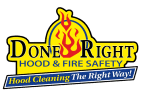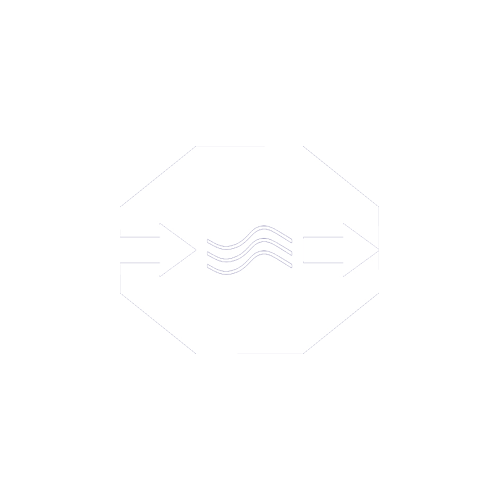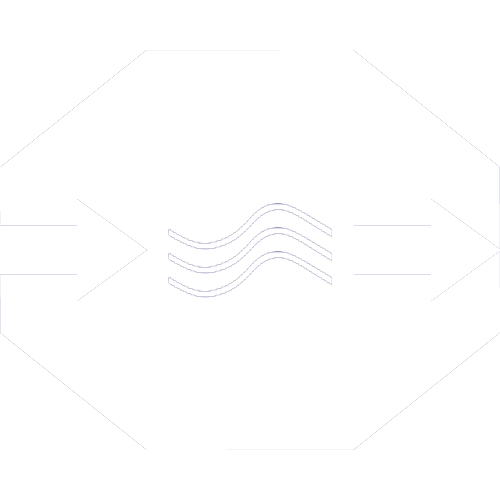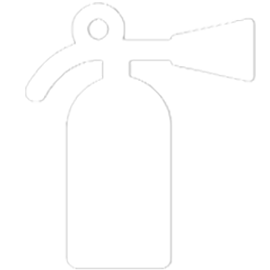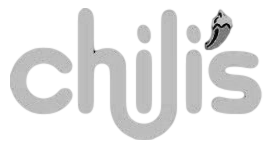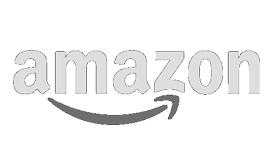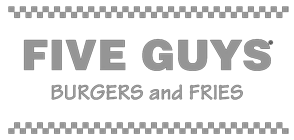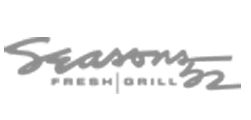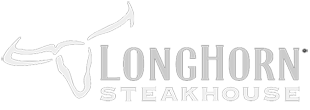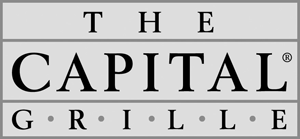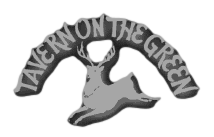Potential fire hazards are the key unseen danger in commercial kitchens. Beneath the choreographed movements and performances of an expert kitchen staff lies a level of potential tragedy that can manifest as fines, fires, and potentially much worse. Understanding NFPA 96 is the golden ticket to maintaining safety standards while keeping the right culinary fires burning.
This isn’t just about learning another set of regulations; it’s like getting a backstage pass to safeguard your cooking operations against costly mishaps or dangerous incidents. Whether you’re running high-volume restaurants or seasonal businesses using solid fuel cooking, mastering these guidelines is critical.
Here, we’re going to explore professional hood cleaning services together, learn how FDNY rules match up with NFPA 96 standards, and take a deep look at inspecting commercial kitchen exhaust systems. All of these are critical for anyone in the food industry.
Table of Contents:
- Understanding NFPA 96: A Comprehensive Overview
- Key Components of NFPA 96
- FDNY Regulations and Their Alignment with NFPA 96
- Role of Professional Hood Cleaning Services
- NFPA 96 Compliance for Different Types of Cooking Operations
- Consequences of Non-Compliance with NFPA 96
- Inspecting and Maintaining Commercial Kitchen Exhaust Systems
- Conclusion
Understanding NFPA 96: A Comprehensive Overview
NFPA 96, developed by the National Fire Protection Association, is a crucial standard that aids in preventing fire hazards within commercial kitchens. Since its establishment back in 1961, this benchmark has been continually revised to accommodate evolving technology and safety concerns.
Commercial cooking operations are diverse – ranging from high-volume establishments like restaurants to seasonal businesses at day camps or senior homes. No matter the cooking volume or whether it involves solid fuel cooking using wood pellets, every kitchen area must adhere to these guidelines for optimal safety.
The Nitty-Gritty of NFPA 96
This standard addresses everything from ventilation control and grease containment devices down to the nitty-gritty details such as hood filter maintenance and cleaning schedules. All these elements play a vital role in reducing potential property damage due to fire incidents caused by combustible contaminants like oily sludge and vaporized grease which can accumulate over time on surfaces of commercial kitchen exhaust systems if not properly cleaned.
A well-maintained hood system should ideally involve professional hood cleaning services ensuring regular removal of heavily contaminated portions that pose an increased risk for fires. Remember folks. It’s better safe than sorry.
Cooking Operations & Compliance
Different types of operations require varying degrees of attention when it comes to compliance with NFPA standards – wok cooking versus low-volume catering gigs for instance might need different frequency levels for inspections but all must abide by one golden rule – cleanliness equals fewer chances of any ‘flaming’ surprises.
In fact, between years 2011-2013 alone, 63.5% restaurant fires were attributed directly towards improper management within their respective culinary operations.

Non-Compliance: The Fallout
If you think grease-laden vapors are scary, the consequences of non-compliance with NFPA 96 can be a real horror show. Legal implications, fines and even increased insurance premiums can result from not following these safety standards. Moreover, nothing kills a business faster than bad PR due to safety negligence.
Key Takeaway:
Understanding and adhering to NFPA 96 is key in maintaining safety in commercial kitchens. It covers all areas from ventilation control to cleaning schedules, emphasizing cleanliness to prevent fire risks. Different cooking operations need different levels of attention but the golden rule remains – cleaner kitchens have fewer ‘flaming’ surprises. Ignoring these guidelines can lead not only to fires, but also potential legal consequences.
Key Components of NFPA 96
The National Fire Protection Association (NFPA) established Standard 96 to safeguard commercial kitchens against fire hazards. The core elements, which we’ll explore here, focus on ventilation control, exhaust systems, and grease filters.
Importance of Ventilation Control
A well-ventilated kitchen is a safer one. Proper airflow helps disperse heat and remove potentially combustible contaminants like oily sludge from the cooking area. By regulating temperature and clearing out greasy residues in the air, you significantly reduce the risk of fires.
Ventilation ducts should be designed for easy cleaning because they can become heavily contaminated with grease-laden vapors over time. Cleaning these areas regularly ensures your cooking operation adheres to safety standards outlined by NFPA 96.
Critical Role of Exhaust Systems
An efficient kitchen exhaust system pulls vaporized grease away from your cooking equipment – stoves, ovens or grills – before it has a chance to settle onto surfaces and create a fire hazard.
NFPA guidelines dictate that commercial kitchen exhaust systems must include listed grease removal devices within them such as hood filters or other approved methods for collecting excess residue before releasing fumes into the atmosphere. According to NFPA 96, regular inspection is required ensuring that all components are functioning properly preventing any build-up leading to property damage or worse scenarios due to non-compliance.
Grease Filters: Your First Line Of Defense Against Fires
Grease filters are another crucial component of your kitchen exhaust system. They trap grease particles that escape during cooking, preventing them from entering the ventilation ducts.
For high-volume cooking operations, it’s important to clean or replace these filters frequently due to heavy accumulation of greasy residues. Remember: a clogged filter not only poses a fire risk but can also reduce airflow and compromise the overall efficiency of your exhaust system.
Key Takeaway:
Mastering NFPA 96: Make your commercial kitchen safer with the key components of NFPA 96 – proper ventilation control, efficient exhaust systems, and regular maintenance of grease filters. Clear airways reduce fire risks while frequent cleaning prevents buildup in ducts. Remember: A well-maintained kitchen is a safe one.
FDNY Regulations and Their Alignment with NFPA 96
The FDNY in New York City is serious about safeguarding when it comes to eateries. They align closely with the standards of NFPA 96, ensuring that every cooking operation in NYC ticks all the boxes.
The FDNY regulations require regular inspections of kitchen exhaust systems. These aren’t just casual glances either – they need professional cleaning services to get into every nook and cranny. After all, grease build-up can lead to serious fire hazards.
NFPA 96: A Crucial Benchmark for FDNY Regulations
When you think about the importance of NFPA 96 guidelines, remember this: between 2011-2013 alone, cooking accounted for an alarming 63.5% of restaurant fires nationwide. So if there’s one thing we’ve learned from our experience on the ground – whether high-volume or low-volume operations – it’s that keeping your hood filters clean isn’t just good practice; it’s vital.
In fact, even specialized techniques like wok cooking have specific provisions under NFPA guidelines because different methods produce varying amounts of grease-laden vapors which could accumulate in ventilation ducts over time.
Certified Companies Make All the Difference
Hiring a certified hood cleaning company like Done Right Hood & Fire Safety, who are trained as per these safety standards not only ensures effective grease removal but also helps avoid potential property damage and legal implications related to non-compliance with NFPA 96 requirements. Remember those annoying fines? Certified professionals know how to keep them at bay.
Beyond this practical aspect though is something equally important—your business reputation. As seasoned experts will tell you —”You don’t want to be the restaurant that caught fire because of a greasy hood filter.”
Inspect, Clean, Repeat: The NFPA 96 Mantra
The importance of regular inspections and maintenance is huge. It’s all about aligning with FDNY regulations.
Key Takeaway:
NYC’s FDNY is serious about adhering to NFPA 96 standards. They insist on detailed inspections and pro cleanings of kitchen exhaust systems to keep grease build-up at bay. Given the high fire risk in restaurant cooking operations, keeping hood filters spick and span isn’t just good practice – it’s a must. Getting certified pros on board for this job not only ensures top-notch cleaning but also helps dodge those pesky non-compliance fines.
Role of Professional Hood Cleaning Services
The heart and soul of any restaurant is its kitchen. But a dirty, grease-laden commercial kitchen exhaust system can lead to disaster if not properly maintained. That’s where professional hood cleaning services come into play.
The Benefits of Hiring Certified Companies
Kitchen exhaust maintenance by a certified company isn’t just about scrubbing down your cooking equipment or removing oily sludge from your ventilation ducts. It’s much more than that.
Professional hood cleaners are trained to adhere strictly to NFPA 96 guidelines, making sure the entire cooking operation – including the heavily contaminated portions – complies with safety standards.
This helps prevent property damage and protects your beloved staff members as well as customers from potential fire hazards.
Grease Removal and Fire Prevention
If you’ve ever tried cleaning an extremely greasy pan at home, you’ll understand how stubborn kitchen grease can be. Now imagine this on a larger scale in commercial kitchens: grime accumulates over time inside hoods, filters, and ducts leading up to the exhaust fan.
Left unchecked these combustible contaminants could ignite causing severe fires. A scary thought indeed. So let professionals tackle this job for you.
- Certified companies use listed grease removal devices that effectively deal with these dangerous deposits.
- Making sure all parts – from solid fuel cooking operations’ hoods right through the vaporized grease-clogged ductwork- are spotless,
- All while adhering local regulations ensuring every inch meets NFPA guidelines which our protection association holds dear.
“Regular cleaning of the kitchen exhaust system is essential to prevent fire hazards and ensure the safety of the facility, equipment, and staff.”
It’s not just about keeping your kitchen spotless, but also ensuring safety and efficiency. With professional hood cleaning services, you can dodge potential fire hazards, maintain a healthy working environment, and keep your equipment running at peak performance for longer.
NFPA 96 Compliance for Different Types of Cooking Operations
When it comes to commercial kitchens, understanding NFPA 96 guidelines is crucial. They aren’t just recommendations – they’re the law. And these laws differ based on your type of cooking operation.
The Heat Is On: High-Volume Cooking
In high-volume operations like bustling restaurants or round-the-clock diners, grease-laden vapors can build up fast. Data from the National Fire Protection Association (NFPA) shows that cooking caused 63.5% of all restaurant fires between 2011 and 2013, highlighting the importance of regular cleaning schedules to prevent fire hazards. Hence, regular cleaning schedules are vital to prevent fire hazards.
Solid Fuel Cooking: Playing with Fire?
Solid fuel cooking involves burning wood pellets or charcoal which generates heavy smoke and volatile compounds. This style requires listed grease removal devices installed in kitchen exhaust systems that get rid of these potentially dangerous by-products before they cause problems.
A Wok on the Wild Side: Specialized Techniques
If you think wok cooking doesn’t need as much attention when it comes to compliance with NFPA standards – think again. The intense heat generated during this method calls for specialized ventilation ducts designed specifically for controlling vaporized grease emissions.
Cool It Down: Low-Volume Kitchens
Kitchens in senior homes or day camps might be categorized as low-volume establishments but don’t let that fool you into complacency. Even here there’s a potential risk from accumulated oily sludge if proper hood cleaning procedures aren’t followed.
Calling in the Professionals
To make sure your commercial kitchen stays on top of NFPA 96 guidelines, it’s a smart move to hire certified professional hood cleaning services. They have the knowledge and tools to ensure that grease removal is thorough, reducing the risk of property damage due to fires.
Remember: compliance with NFPA 96 isn’t just about following rules – it’s about ensuring safety for both staff and customers. So don’t let your guard down – keep those hoods clean.
Key Takeaway:
Don’t underestimate NFPA 96.: It’s not just guidelines, but laws for commercial kitchens. Whether you run a high-volume restaurant or a low-key senior home kitchen, proper grease removal and hood cleaning is vital to prevent fire hazards. Compliance ensures safety for everyone involved – so keep those hoods clean.
Consequences of Non-Compliance with NFPA 96
From legal trouble and hefty fines to increased insurance premiums and damage to business reputation – the cost of ignoring these safety measures is high.
The immediate impact of flouting these guidelines often manifests as legal issues. Ignoring fire safety norms could lead you straight into courtroom battles, where your restaurant or cooking operation may face severe penalties for endangering public safety. These financial burdens are often far more than what it would take to maintain compliance in the first place.
In addition, your insurance premiums might skyrocket if they learn about any disregard for NFPA rules in your kitchen operations. This stems from the simple principle that insurers base their premium rates on risk assessment – so failure to adhere by set protocols increases potential hazards and hence drives up costs.
Fines: A Heavy Burden on Business Finances
Besides dealing with inflated insurance premiums, businesses failing NFPA inspections also get hit hard by heavy fines. Local regulations mandate regular inspections which when failed result in substantial penalties that add strain onto already tight budgets.
Damaging Your Reputation Can Hurt More Than You Think.
If word gets out about neglecting crucial fire safety measures like proper hood cleaning or maintaining grease filters within prescribed limits; it’s bad news for any establishment’s image. The fallout goes beyond merely losing customers; seasoned industry professionals such as chefs may be wary about working in unsafe environments too. So don’t let a poor maintenance schedule tarnish your brand name forever.
Note:
- Avoid using non-listed grease removal devices as they may not meet NFPA guidelines.
- Regularly inspect commercial kitchen exhaust systems to remove combustible contaminants prior to their accumulation. Failure in this aspect could result in severe property damage due to potential fire outbreaks.
work environment is vital. It’s crucial for everyone, from the top brass to the kitchen crew, to grasp this. Remember, safety first always.
Key Takeaway:
Ignoring NFPA 96 standards in your commercial kitchen is a costly mistake, leading to legal issues, hefty fines, and higher insurance premiums. More than just financial losses, non-compliance can tarnish your business reputation and even discourage professionals from joining your team. So make sure you regularly inspect exhaust systems and maintain proper cleaning schedules for safety’s sake.
Inspecting and Maintaining Commercial Kitchen Exhaust Systems
The backbone of a safe commercial kitchen is a well-maintained exhaust system. Regular inspections by certified professionals can help spot areas that need attention, ensuring your kitchen meets the safety standards outlined in NFPA 96.
Steps in Inspecting and Maintaining Kitchen Exhaust Systems
Your first step should be to examine the grease filters. A clogged or damaged filter won’t effectively trap grease-laden vapors, leading to buildup within ventilation ducts.
Moving on, inspect the hood for any visible signs of wear or contamination. An oily sludge accumulating around it indicates inadequate cleaning services.
You also have to check if your solid fuel cooking operations are properly vented since they generate high volumes of combustible contaminants compared with other types of cooking equipment.
In case you run into issues during inspection that you’re unable to fix yourself – don’t panic. This is where professional hood cleaning companies come into play.
Hiring Certified Companies: Why It’s Worth It?
A certified company doesn’t just clean up; they give peace of mind. These pros understand NFPA guidelines like the back of their hand and use specialized tools designed specifically for this task – something no DIY job can match.
Beyond compliance with local regulations, regular maintenance helps extend life expectancy for commercial kitchen exhaust systems while reducing risks associated with fire hazards.
Remember:
- Regular inspections by certified professionals identify non-compliance areas,
- They ensure your commercial kitchen meets the latest safety standards outlined in NFPA 96.
- Grease filters, hood cleaning and proper ventilation of solid fuel cooking operations are crucial to maintain a safe environment.
Wrapping things up, if you stick to these steps, they’ll guide you in maintaining compliance effectively.
Key Takeaway:
Maintaining a Safe Commercial Kitchen: Keep your kitchen safe by regularly inspecting and maintaining the exhaust system. Check grease filters, hood cleanliness, and proper venting of solid fuel operations. Certified pros can help you spot issues, meet NFPA 96 standards, and reduce fire risks. Stick to these steps for effective compliance.
FAQs in Relation to Understanding NFPA 96
What are the NFPA 96 guidelines?
NFPA 96 provides safety measures to prevent fire risks in commercial kitchens, including ventilation control, exhaust systems management, and regular grease filters maintenance.
What are the clearances for NFPA 96?
The clearances defined by NFPA 96 vary based on equipment type. It generally requires adequate space between cooking appliances and combustible materials to reduce fire hazards.
What is the scope of NFPA 96?
NFPA 96 covers design, installation, operation, inspection and maintenance of public eating establishments’ venting systems to ensure they’re safe from fires that can occur during cooking operations.
What do NFPA codes mean?
NFRA codes like ‘NFRA-1’, ‘NFRA-101’, etc., represent different sets of regulations created by National Fire Protection Association for specific safety concerns such as life safety code or building construction code respectively.
Conclusion
Understanding NFPA 96 is your key to mastering kitchen fire safety. This set of guidelines, if followed properly, can protect your commercial cooking operations from fire hazards and costly mishaps.
You’ve learned about the importance of proper ventilation control, professional hood cleaning services, and regular inspections for grease removal in keeping your kitchen safe. Remember that these aren’t just regulations – they’re life-saving measures that keep our culinary symphony playing without missing a beat.
The stakes are high: non-compliance could lead to legal issues, fines or even damage to your business reputation. But with knowledge comes power – now you have what it takes to make sure you stay on top of these standards for a safer workspace!
